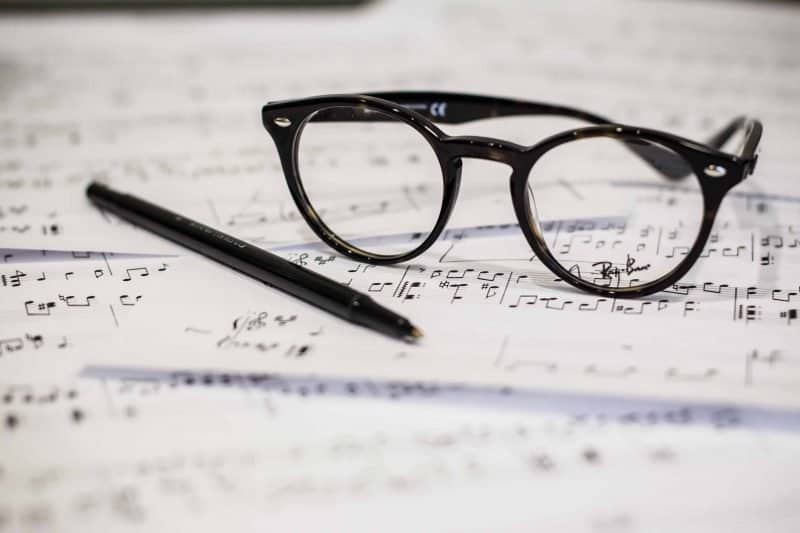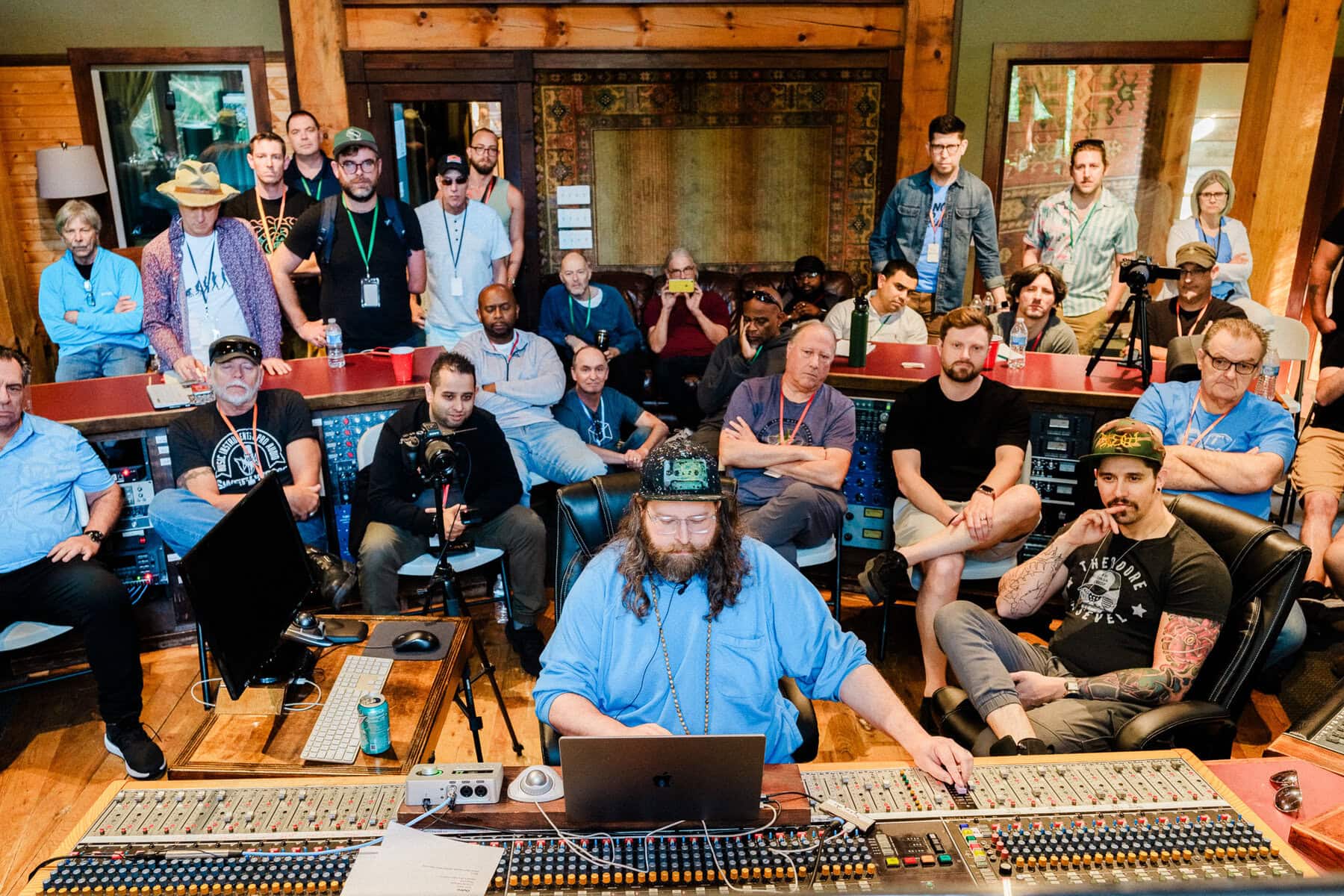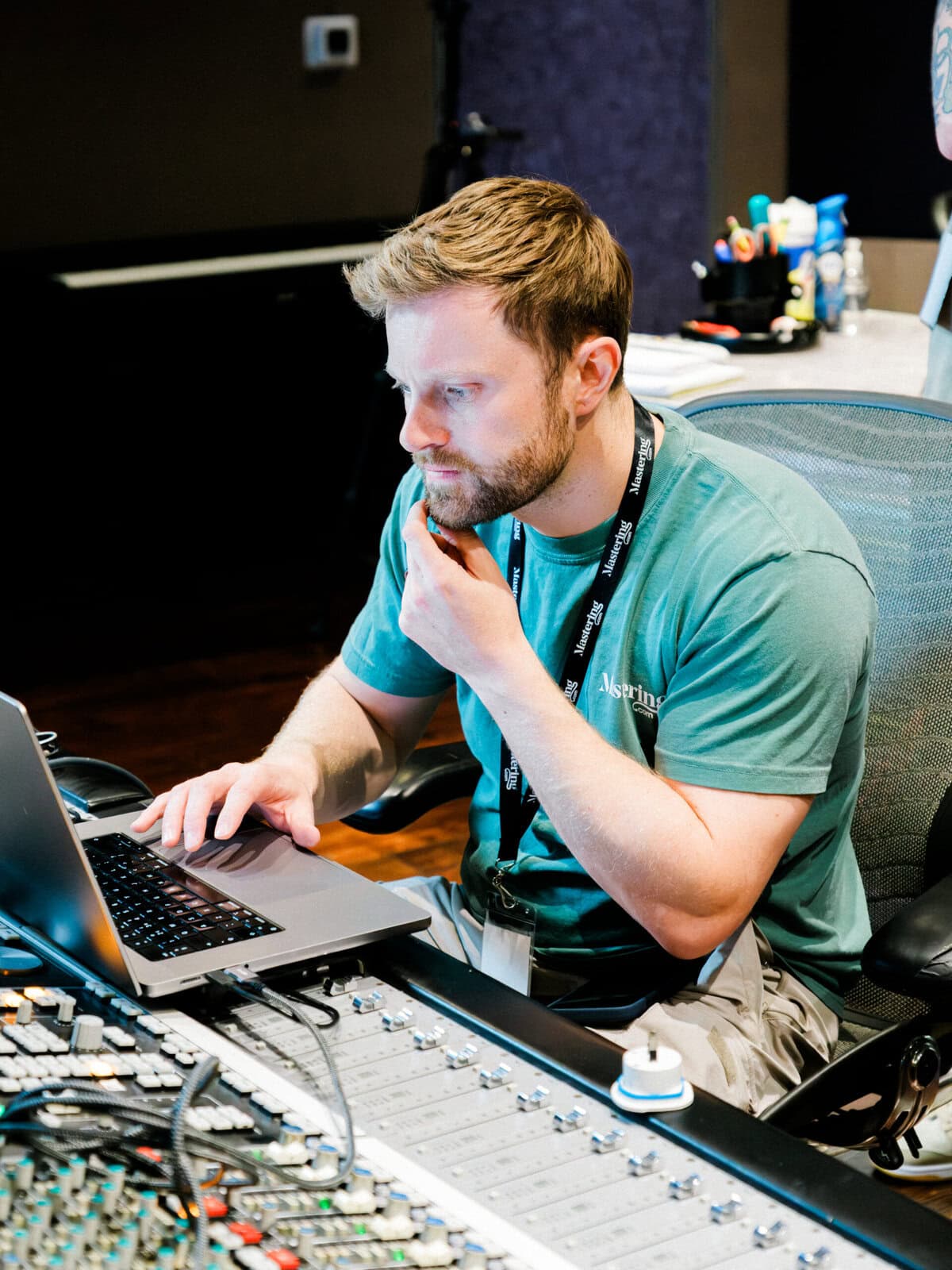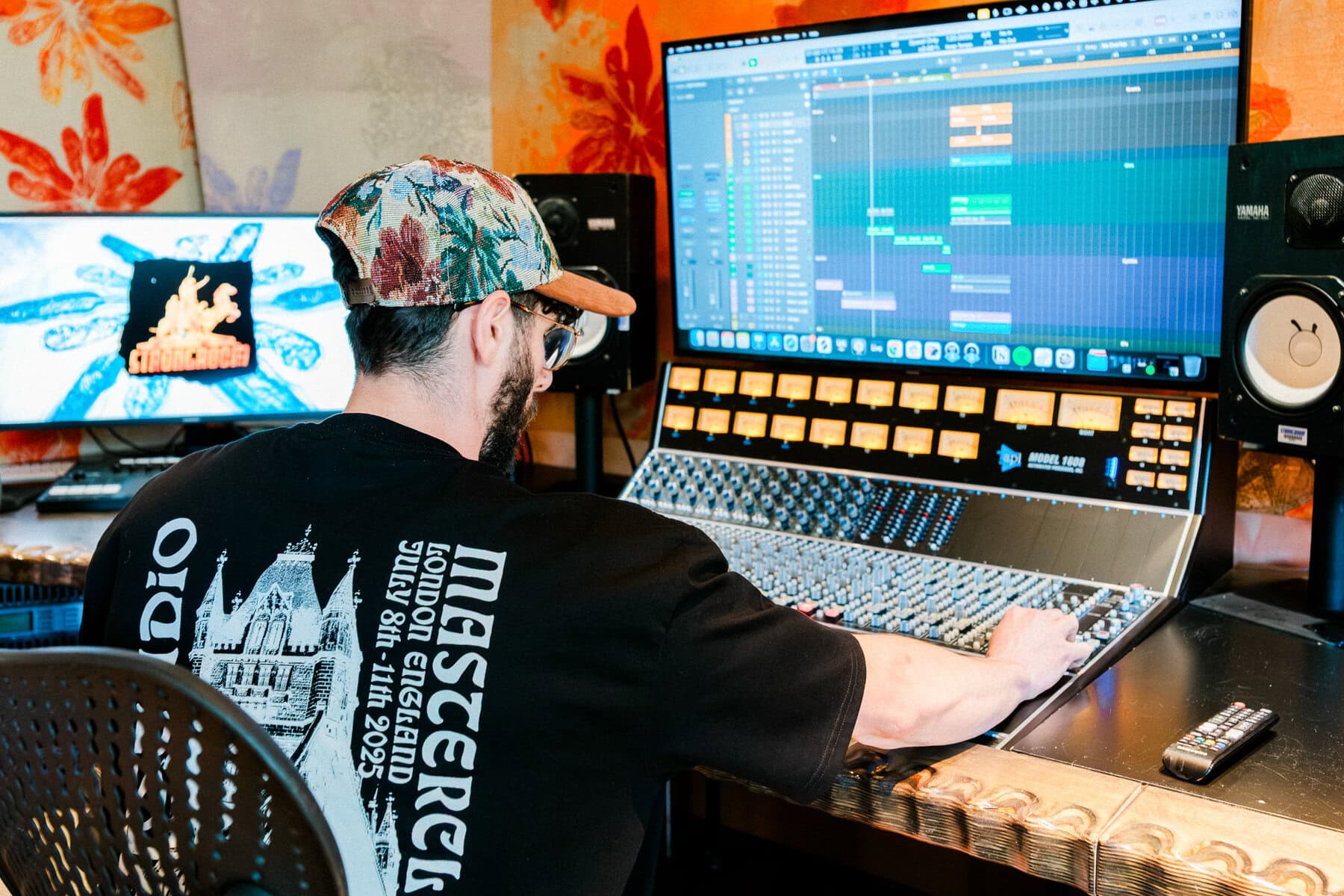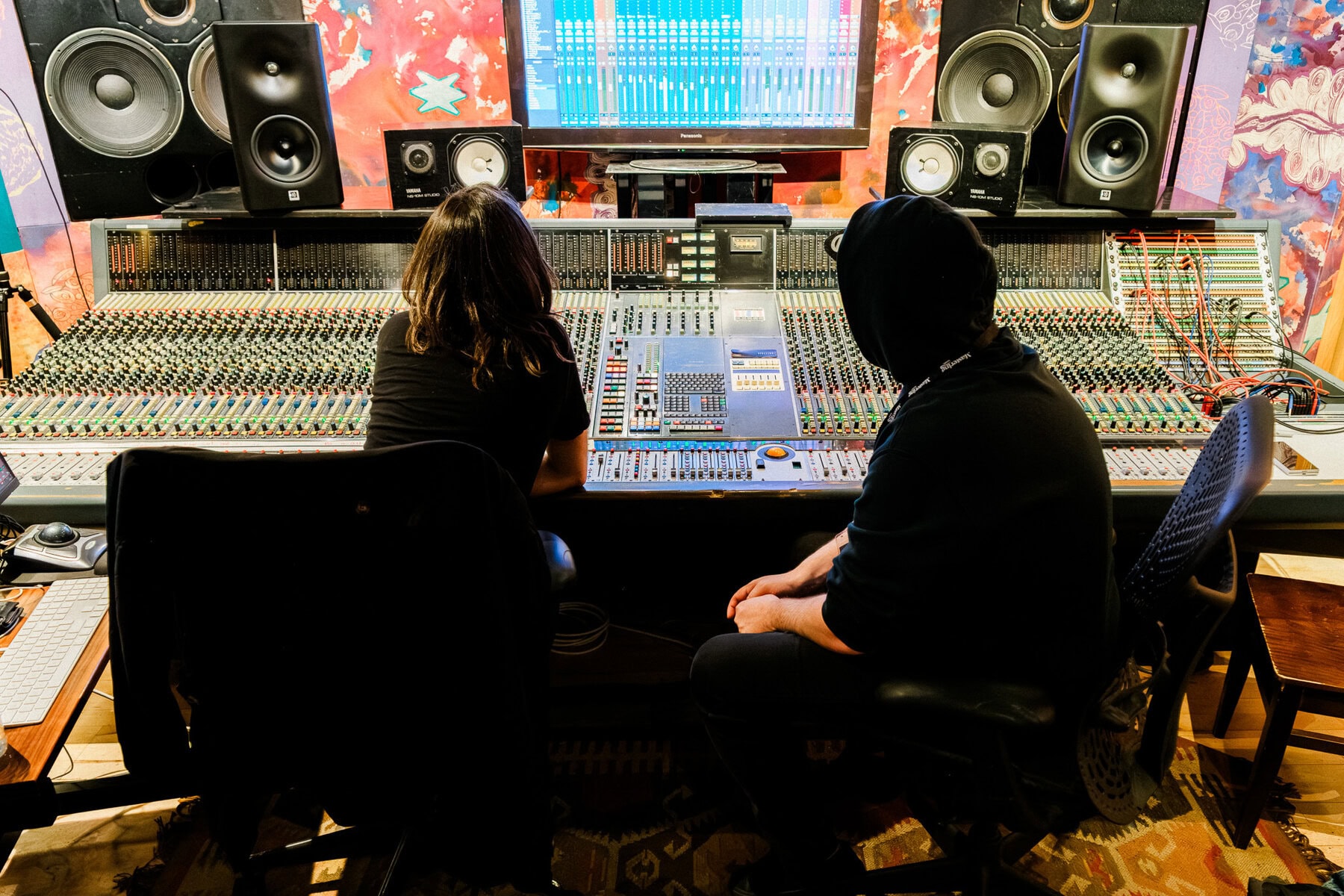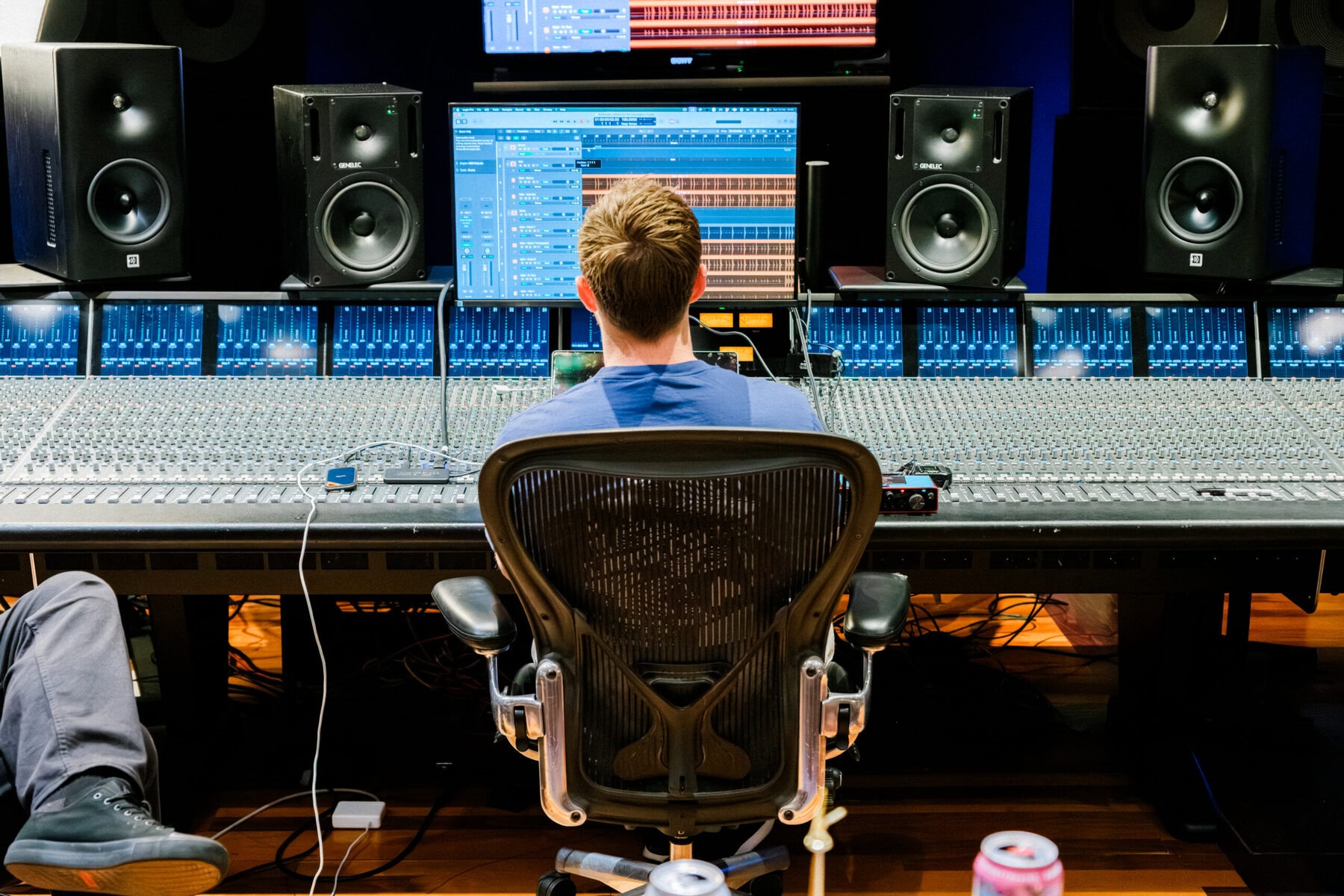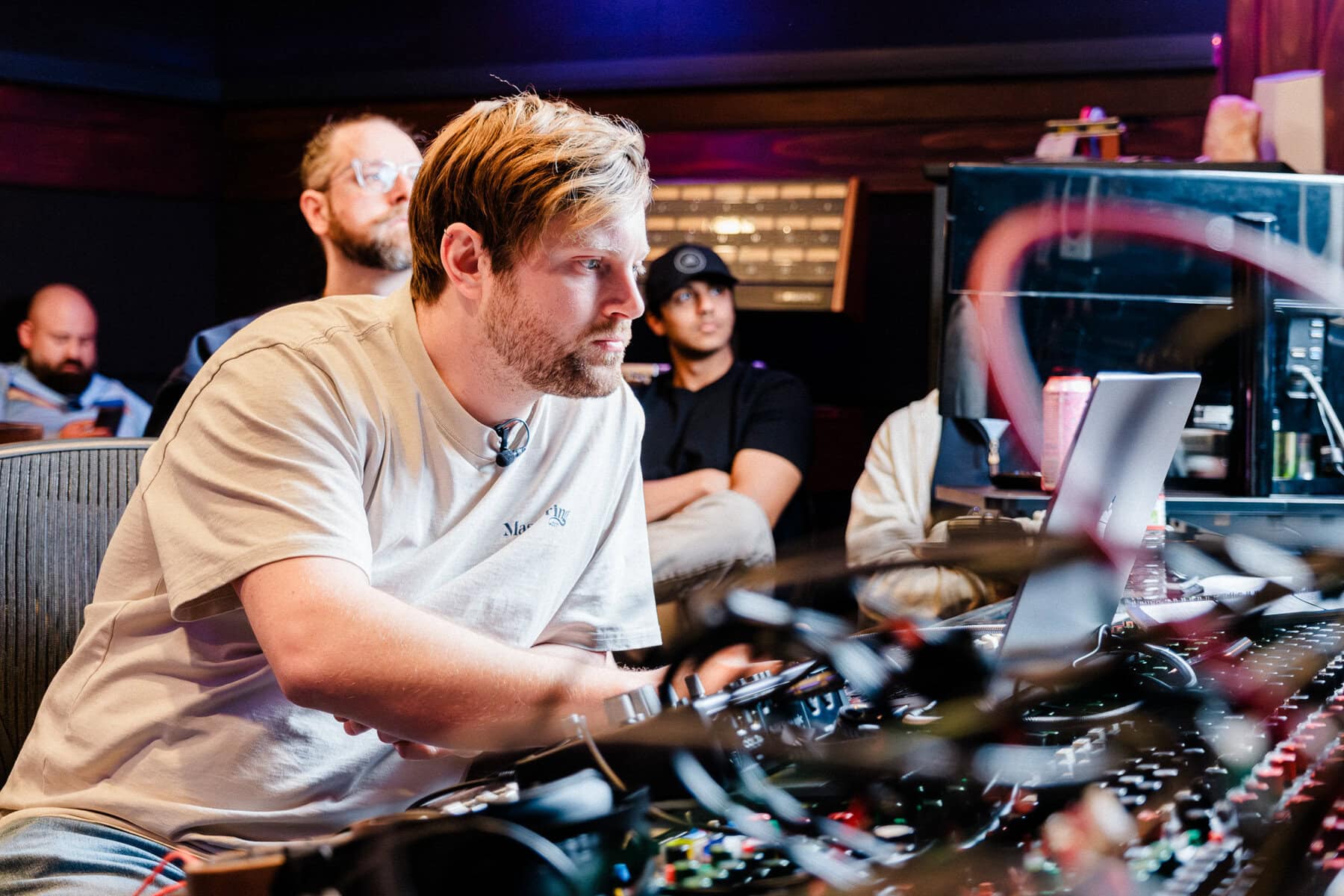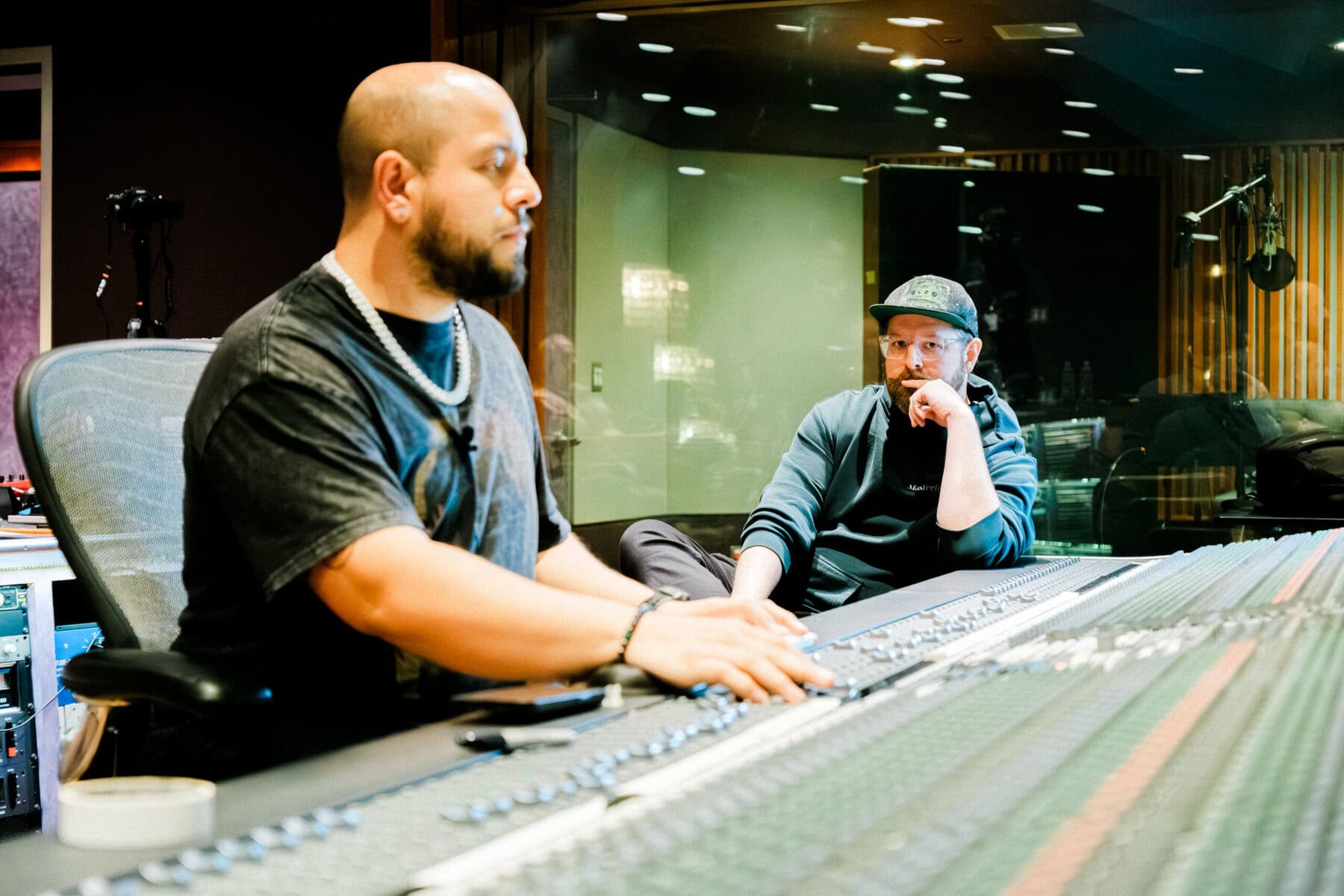Looking to make a career out of your songs? Music publishing should be at the top of your list.
If you’re not actively managing your music publishing, you’re leaving money on the table.
Today, you’ll learn to cut through all of the legal jargon of the publishing industry and make more money with your music.
If you’re like most people in the music business today, you’re probably producing your own music. We put together a brief training that covers a totally new approach to music production. Until now, everyone has been teaching production totally backward. Just click below to watch. Get industry-quality in your music every time (steal this framework)
But if you just want to learn all about Music Publishing specifically, keep reading.
Why Do I Need to Know About Music Publishing?
If you have ever written or recorded a song, this stuff applies to you.
![]()
Every person in the music industry has a relationship to music publishing.
Whether you write it, record it, sing it, play it, sell it, remix it, bop it, twist it, bop it, pass it (dun dun dun dun dun dun), you need to understand how to properly protect your work and how to properly use the works of others.
What is Music Publishing?
To answer that, we have to break down what a makes a song.

First of all, cowbell. Cowbell makes every song.
Anyway, every piece of of recorded music consists of two parts: the composition and the recording (often called the master recording or just master).
Music publishing is the business of “leasing out” the composition. But before I explain that, let’s go over what the composition and master recording are…
What is a “Composition?”
A “composition” is the underlying musical work of a song.
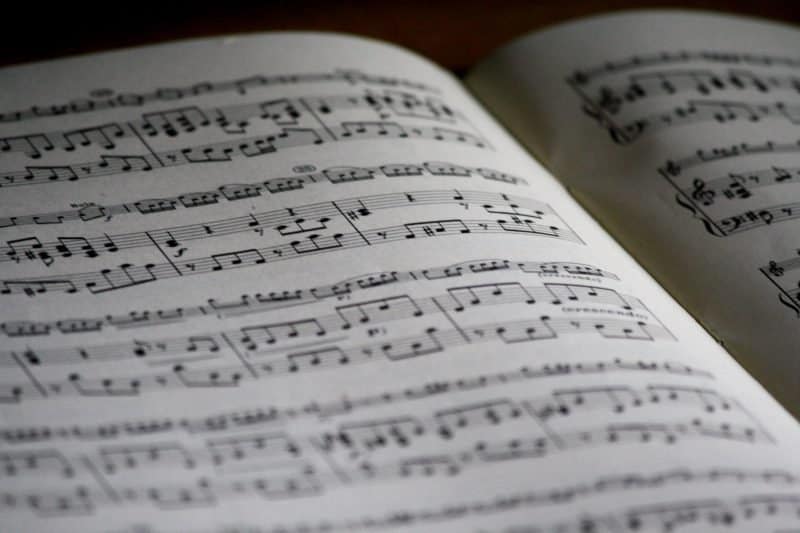
For the most part, a composition is made up of the melody and lyrics (if there are any lyrics).
Normally, the arrangement, the sick horn line, or even the chord progression doesn’t truly make up the protectable composition. That is reserved for the most basic elements of the work.
For example, the lyrics and melody of “Don’t Stop Believin’ ” by Journey are considered a composition. Its classic chord progression, however, is not.
That’s usually because chord progressions are not unique enough to be considered their own copyrightable piece of intellectual property. For example…
Crazy right?
A composition is its own independent piece of intellectual property and has its own set of rights. It’s usually marked by the symbol ©.
What is a “Master Recording?”
The “master recording” is the fixed recording of a musical work.
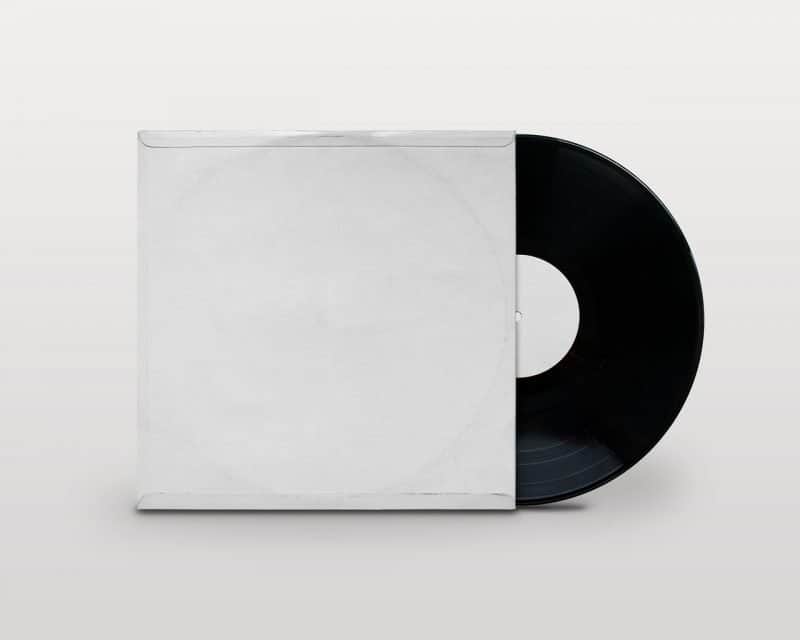
Like the composition, the master recording is its own piece of intellectual property. The big difference is, in the case of musical works, master recordings almost always include another piece of intellectual property, the composition. Master recordings are marked by the symbol ℗.
Confused? Let’s look at this through a real world example.
A “song” can have a million different recordings, but it will still only be one composition. Take Leonard Cohen’s “Hallelujah”.
Fun (and not at all true) fact: every 2.7 seconds, someone releases a new cover of “Hallelujah”.
Each one of these versions is a “unique” recording, but they are still of the same composition. Even if the artist changes the chord progression and adds a guitar solo.
So with each of these new recordings, a new master recording (℗) is created but not a new composition (©).
Here’s what you need to take away from this:
Music publishing, at its core, is about the protection and monetization of the composition, NOT the master recording.
So, Who Owns the Composition?

When it comes to who owns the composition, it’s pretty simple: the writer(s).
Whoever wrote the song owns the composition. At least, that is the case for most music. There are a few exceptions (works made for hire, superstar artists negotiating a share of their songs), but for the most part, if you wrote it, you own a part of it; if you didn’t, you don’t.
It’s common practice in the US to evenly split a song among its writers. That means if you wrote it all by your lonesome, you own 100% of the composition. If you wrote it with your buddy, you each own 50%. If you wrote it with two buddies, you each own 33.33% (and so on and so forth).
Though it may seem simple, there have been countless lawsuits over who “owns” a song.
To save yourself from this legal headache (and wallet-ache, if that’s a word), I would suggest that you openly discuss and document the ownership of a song before a writing session.
This can be as simple as a one sheet agreement stating that all the writers present agree to split the song equally.
You might feel like a total dork for suggesting this but trust me, it will save you a lifetime of headaches (and potentially a lot of money) down the line. Grab a free template agreement here.
Now that we know who owns a composition, let’s talk about what you get with your ownership.
The ownership of a composition (or copyright for that composition) comes with some benefits.
Anyone who owns a copyright, or part of a copyright, holds the right to:
- Make copies of the work
- Create new works based on the original copyright
- Distribute copies of the work
- Perform the work publicly
- Display the work publicly
- There is a sixth right granted to copyright owners, but it only applies to master recordings. We’ll get to that in a bit.
The copyright owner(s) make money by granting these rights to others. We’ll talk about that later.
Okay, Then Who Owns the Master Recording?
This answer is usually pretty simple: whoever paid for it.
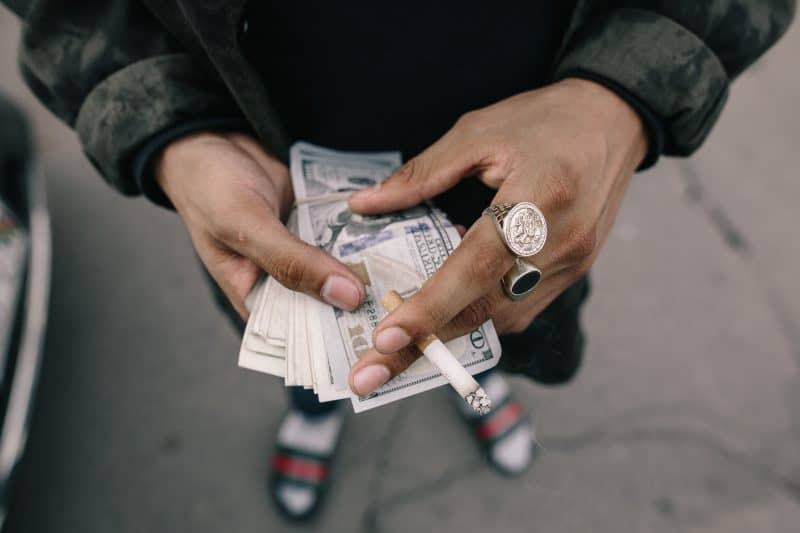
In the world of signed artists, the owner of the master recording is usually the label. This is because the label financed the recording session. The label makes some of their money by selling copies of the master recording via CDs, vinyl, downloads, or through streaming services like Spotify or Pandora.
The producer (and sometimes even the musicians) will often be given “points” on a master. This means that they get a small percentage of the money that the master recording earned. A producer will usually get between 1 to 5 points which translates to 1 to 5 percent of sales.
That’s simple enough. But here’s where it gets murky: independent artists.
In the world of independent artists, the owner of the master recording is the person that paid for the recording. Most times, this is the artist. Seems simple enough right? Well, it gets very messy very quickly because of one thing: communication. Rather, a lack thereof.
Let me take you one a hypothetical journey.

You’re an artist. You found a great producer for a price that you can afford. You agree upon the price over coffee and you are so excited to get started. You think to yourself: “This person knows how this should work. I’ll own the master. Simple as that.”
WRONG!
Assume nothing.
You know what they say about assuming. It loses money for you and me, ass… or something like that.
Communicate with every person that you work with. Clearly express the terms in detail, write them down, and have everyone sign them.
You might be thinking “But… I don’t want to be the nerd that whips out a contract. That’s not cool.”
You know what’s really uncool? Three years of legal battles.
I’m here to tell you: BE THAT NERD.
Did you learn the lesson? That the spirit of Christmas lives in all of us and that it’s never too late to start anew?
No?
Well, that’s because I didn’t communicate my intent well and now we have a misunderstanding.
Did you get my actual lesson? To always communicate with everyone you work with and that contracts are cool?
Yeah?
Good.
Now that we’re back from our hypothetical and we all agree to always communicate, let’s talk about what independent master recording ownership should look like.
As we’ve said before, the owner of the master should be the person who pays for it. This is usually the artist. The producer, in most cases, does not own the master recording.
Like with signed artists, the producer can, and often should, be given “points” on the album. When working with independent artists, producer points can have a wider range than when working with signed artists.
These points can range from 1 all the way up to 20 (or higher). These all depend on many factors.
Some of these factors can be the amount of initial payment that the producer receives, how production intensive the song will be, how well know the producer is, how well known the artist is, etc.
The main idea is to mix (pardon the pun) these forms of compensation to reach a fair and equitable settlement for everyone involved. Artists, don’t underpay your producers. Producers, don’t try to overcharge the artist. Everyone, pay your musicians.
In short, respect your fellow creatives. You have spent years honing your craft and so have they. You both should come to the table with mutual respect and the desire to collaborate without the intent to take advantage of them.
How Your Song Makes Money Part 1: The Composition
Money: because you can’t pay your rent with exposure.
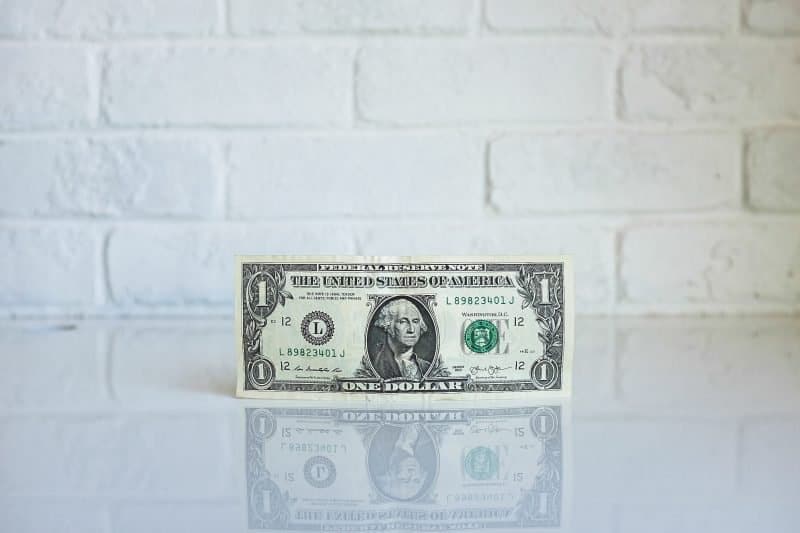
Whether you own the master recording or the composition, the way you make money from a song is through the exploitation of a copyright. The word exploitation sometimes has a negative connotation. In this case, it simply means to use the copyright to generate income.
Because there are different ways that compositions and master recordings are exploited, I’m going to split them into two different sections. SPOILER ALERT! The master recording earns way more money. Don’t get mad at me. There are very smart and driven people fighting to even out the pay. So write to your congressperson, songwriters.
Anyway, let’s start with the composition. The way that a composition earns money is by “renting” out the song to radio, TV, and other entities to generate royalties and fees..
There are several types of royalties and fees that a composition can earn. The most common three are performance royalties, mechanical royalties, and synchronization fees.
Performance royalties are generated anytime a composition is played in public. I’m not going to get into the legal weeds of what does and doesn’t constitute a public performance so here are a few common examples:
- A recorded song played on the radio
- A recorded song being played in a bar
- A band playing a composition live at a concert
- A band playing an acoustic cover of a song for the radio
For the purposes of this article, let’s think of a public performance as anytime a composition is played where the “public” can hear it.

Now you might be wondering to yourself, “How on earth am I supposed to monitor every one of my compositions and collect money every time it’s played?”. Fear not, dear reader, there are companies for that.
A Performing Rights Organization, or a PRO, is designed to collect performance royalties for songwriters.
Let me be clear: EVERY SONGWRITER SHOULD JOIN A PRO.
In the US, there are three major PROs: ASCAP, BMI, and SESAC. Each organization offers different perks but the same basic service: collecting performance income for a songwriter’s catalog.
PROs grant licenses to bars, concert venues, radio stations… pretty much anywhere that plays music publicly. They charge these places a licensing fee depending on their size, then pass a majority of the revenue back to you.
A songwriter can only be affiliated with one PRO at a time so be sure to do your research before joining. Everybody’s needs are different so I can’t give you a one-size-fits-all recommendation for which one you should join.
A great resource when considering this decision is the book Music, Money, and Success by Jeffrey and Todd Brabec.
The next common income source is mechanical royalties. Mechanical royalties are generated when a composition is “reproduced.” Anytime a copy of the work is “permanently” created, a mechanical royalty is generated.
(I use quotation marks for “permanently” because streaming generates a mechanical royalty but not necessarily a permanent copy.)
Anyway, in the interest of not getting bogged down in technicalities, let’s just think of a reproduction as any copy of a song. Most of this income comes from the sale of a recorded song. It doesn’t matter what the medium of sale is or who recorded the song, the writer gets a royalty.
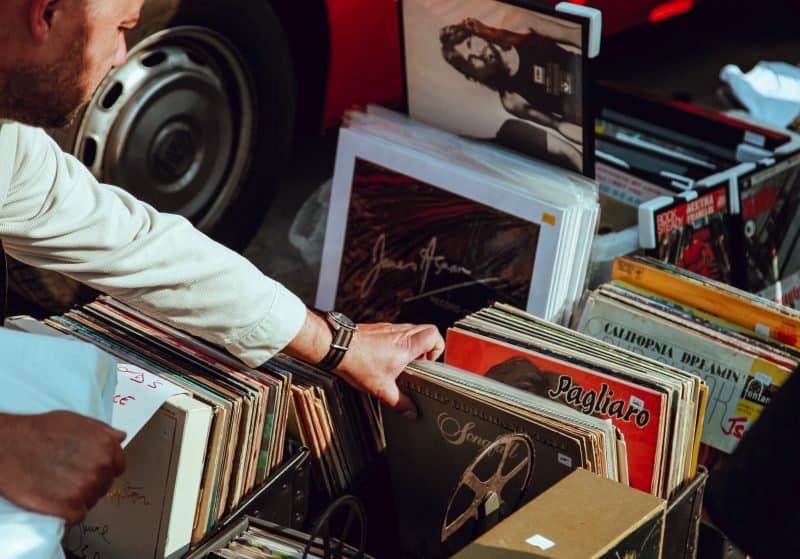
The original recording sells a vinyl? The composition gets a royalty.
A cover recording sells a cassette? The composition gets a royalty.
A third cover recording sells a digital download? The composition gets a royalty.
Anytime a copy is made (and sold) the composition gets a royalty.
Mechanical royalties are (usually) paid out by the seller (iTunes, Amazon, a record shop, etc). This royalty rate is set by a panel of judges.
The collection of this money is typically handled by the publisher (or by the writer themselves if they do not have a publisher) or a third party agency that specializes in mechanical licensing (like Harry Fox Agency).
We’ll go into a bit more detail on collecting these royalties yourself later.
Now for the last income source for a composition that we’ll talk about, and my personal favorite: synchronization fees. *launches confetti into the air*
Synchronization fees (often called sync fees) are generated when a work is used alongside some form of visual medium. For those of you who do not speak publisher, a sync fee is money you get when your work is used in a movie, ad, TV show, or any other video production!
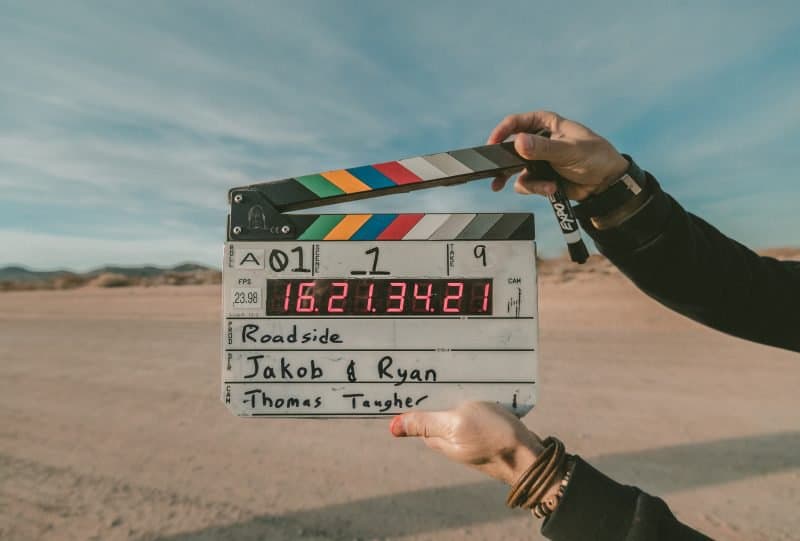
Sync licenses are some of the most sought after licenses in the music publishing world. This is because they can range from a few hundred dollars to a few hundred thousand dollars, depending on the song.
How do you get one? Well that’s the question isn’t it?
First, a music supervisor (someone who finds music for video productions) has to find your song and love it. Then, they will reach out to the owners of the composition and the master recording. They’ll then make offers to both.
If all parties accept the terms, then the music supervisor will tell the video production that they found a song and the production will use the song.
Aside from the upfront money, sync licenses can also generate a lot of publicity for an up-and-coming artist if the video production takes off.
Sync fees are usually lump sums paid out by the production using the composition. These fees are also the easiest to collect because, unlike performance and mechanical royalties, whoever is using your works needs to get your direct permission.
Although we only discussed three types of revenue, there are a number of other ways that a composition can earn money. Once again, the book Music, Money, and Success by Jeffrey and Todd Brabec is a great reference.
How Your Song Makes Money Part 2: The Master Recording
Alright. Now onto the master recording.
Did you skip that last section about monetizing a composition?
First of all, rude. Second, you should go back and read it because I’ll be referring back to it in this section.
The ways that a master recording makes money are very similar to the ways that a composition makes money: Using a master recording generates royalties and fees. There are a few key differences though.
Like the composition, the main three income sources for a master recording are performance, mechanical, and sync.
Performance royalties for master recordings are not generated with every public performance. Although there are some exceptions, most master recordings will only see performance revenue from digital services like streaming and satellite radio.

This includes services like Pandora, Spotify, and Sirius XM, however, this does not include terrestrial (AM/FM) radio.
That’s right. When your local radio station plays your hit single during their prime time hours only the composition owner earns money. The master recording gets a big fat nothing.
Don’t worry though, master recording owners. When a master recording is streamed it usually makes around five times more per stream than the composition that it embeds.
This money is tracked and collected, for the most part, by a company called SoundExchange. Much like a PRO, a master owner must sign up with SoundExchange to receive their performance royalties.
Now, onto mechanical royalties and guess what! Master recording owners make more here too!
Mechanical royalties are generated for master recordings the same way that they are generated for compositions. Any time that a new, “permanent” copy of the master recording is created. This includes vinyl, CD, digital download, and even streaming.
The key differences between mechanical royalties for master recordings and compositions are the rate and how they are collected.
Like performance royalties, the rate for master recording mechanical royalties is much higher than the rate for the composition. Like I said, write your congressperson.
This is, partially, because the mechanical royalty rate for compositions is a fixed, legal rate while the rate for master recording mechanicals is a bit more market driven.
The collection of these master recording mechanical royalties is handled, mostly, by the distributor. If you’re an independent artist, that means you.
There are multiple distribution and administrative companies that will collect these royalties for you (I’ll give you a list later) or you could do it yourself (it’s not a difficult as you may think). The key is understanding your needs and picking the right path for you.
Now, back to my favorite type of income: sync!
Fortunately for all of us, the process for sync licensing is nearly identical for composition owners and master recording owners.
The company that wishes to use the song will contact the master recording owner and the license fee will (usually) be the same as the fee for the composition.
How To Publish It Yourself
Okay!
Now that we have covered the basics of music publishing, the next question is: how do I do this without a music publisher or label?
Well, the answer is simple:
It depends.
The end.
Alright, fine. It does depend but we can go into some of the things that everyone needs.
Protection. A spear and a well guarded hut are vital. If you and your group are killed by a horde of zombies, it makes it very difficult to crank out new jams.
Maybe that’s not the type of protection I mean but I stand by the last statement. It is hard to make music as a zombie.

No matter who you are, if you own a composition or a master recording you need to make sure that you keep owning it.
This means protecting your copyright. The first step in this process is clearly defining ownership.
As I have mentioned before, there are free and simple one sheet documents for composition and master recording ownership online. Whenever you start working with someone, discuss the ownership beforehand and get it in writing. Please.
It’s also important to work with people you trust. Often the music industry has a bad reputation for having some shady people in it. While that may be true sometimes, it’s hardly the norm and you should never justify working with a sleaze ball by saying something like, “That’s just the music industry.”
I have found that for every slick talking creep in music, there are five great, honest people that want to help everyone that they meet. So if you ever find yourself working with someone that you don’t trust or get a bad vibe from just leave.
I promise you’ll find another person to work with that’s better at what they do and more honest.
Working with dishonest people is just not worth it.
I want to preface this next part with: I AM NOT A LAWYER. I AM NOT GIVING YOU LEGAL ADVICE. I AM ONLY TELLING YOU MY OPINION AS SOMEONE WHO WORKS IN MUSIC PUBLISHING.
When you think of copyright protection, you probably think of filing an official copyright. While that will eventually be necessary, you might not have to do this immediately.
If you followed my first two steps, I would suggest waiting to file a copyright until you start to actively use or promote a new work.
Filing multiple copyrights can get very expensive very quickly so, if you have openly discussed ownership, signed the suggested paperwork, and have been working with honest people, I would wait to file a copyright until you release a song. This way, you aren’t spending money filing copyrights for works that will spend their life sitting in a notebook.
The copyright office provides helpful information about registering your copyright when you are ready.
Now that your work is reasonably protected, let’s get to the fun part: MAKING THAT MONEYYYYYYYYY!!!!
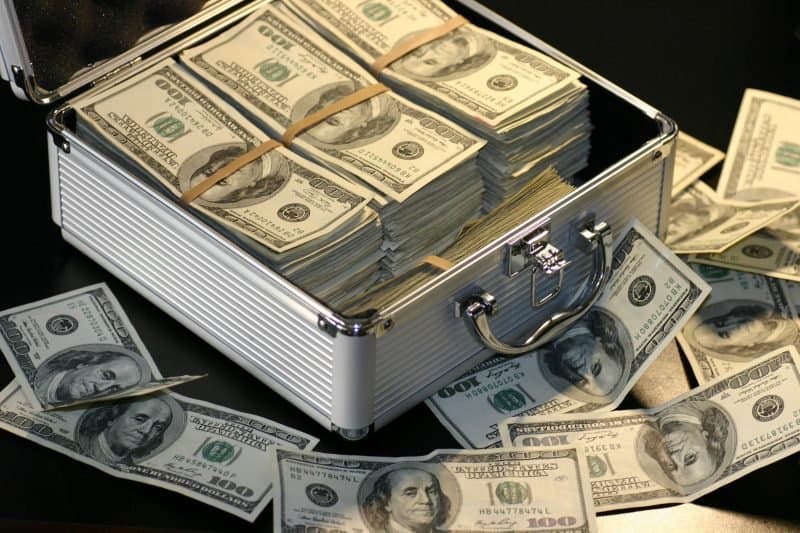
Well, more like collecting the money, but whatever.
If you are a songwriter, you’ll want to make sure that you are collecting all the money that your composition is earning. This means signing up for a PRO to collect performance revenue and deciding how you want to collect mechanical revenue.
I wish I could tell you that one of the three PROs is the best and that the decision is easy, but I can’t. Every writer should think about what they want and need from a PRO, do research, and make an informed decision. Here is a fairly comprehensive analysis of the three PROs, but I suggest doing your own research as well.
You’ll also need to make a decision on how to collect your mechanical revenue. There are a few options. You can sign up with Harry Fox Agency (HFA), collect it yourself, or use an a la carte service from your music distributor (CD Baby, TuneCore, Distrokid, etc.).
I suggest doing your own research on this as well.
Affiliating with HFA is usually the best option once your music has started selling well and you have some traction but still haven’t signed with anyone. HFA has a broad range of collection channels and can be a great asset. However, because they are such a huge company, sometimes smaller clients could have the potential to be ignored.
I am not saying that HFA ignores its small writers, I’m just saying that any small client of any company runs the risk of ranking low on the priority list.
Collecting the money yourself lets you keep the most money, but it takes the most work. I really don’t recommend this approach unless you are planning to start your own publishing company. And even then I would consider affiliating with HFA.
But if you insist on collecting the mechanical income yourself, be sure to be thorough. Keep extensive notes on where you sell your music, how much you are being paid, and how often money is distributed.
If you are hesitant to affiliate with HFA and sane enough not to collect your own mechanical royalties, then maybe an a la carte service is for you. Most major independent distributors like CD Baby and TuneCore have additional publishing services that you can sign up for.
Depending on the distributor, these services may cost a set fee or a percentage of the royalties, but you get the resources and connections of a larger company and you don’t have to eat up your time filing paperwork.
If you own a master recording, I suggest affiliating with SoundExchange. This will help you to keep track of all of the plays you are getting across the vast internet and give you more time to focus on perfecting your craft. I wouldn’t suggest collecting these mechanical royalties yourself either. Trust me, it is a pain.
NOTE: You can learn more about promoting your releases in our recent guest video:
Conclusion: Music Publishing 101
In short, to do this yourself you need to be smart, thorough, and make the decision that is best for you. Always remember to communicate well and to work with people you trust. Know your rights and be assertive in protecting what is yours and don’t try to take advantage of people.
Don’t let yourself be screwed and DON’T SCREW OTHERS.
I’ll know if you do.
If you want to dig deeper into music production and learn what it actually takes to make mixes that sound pro… And you’re an intermediate or advanced producer… Be sure to check out the free masterclass: Enjoy!Next Steps

